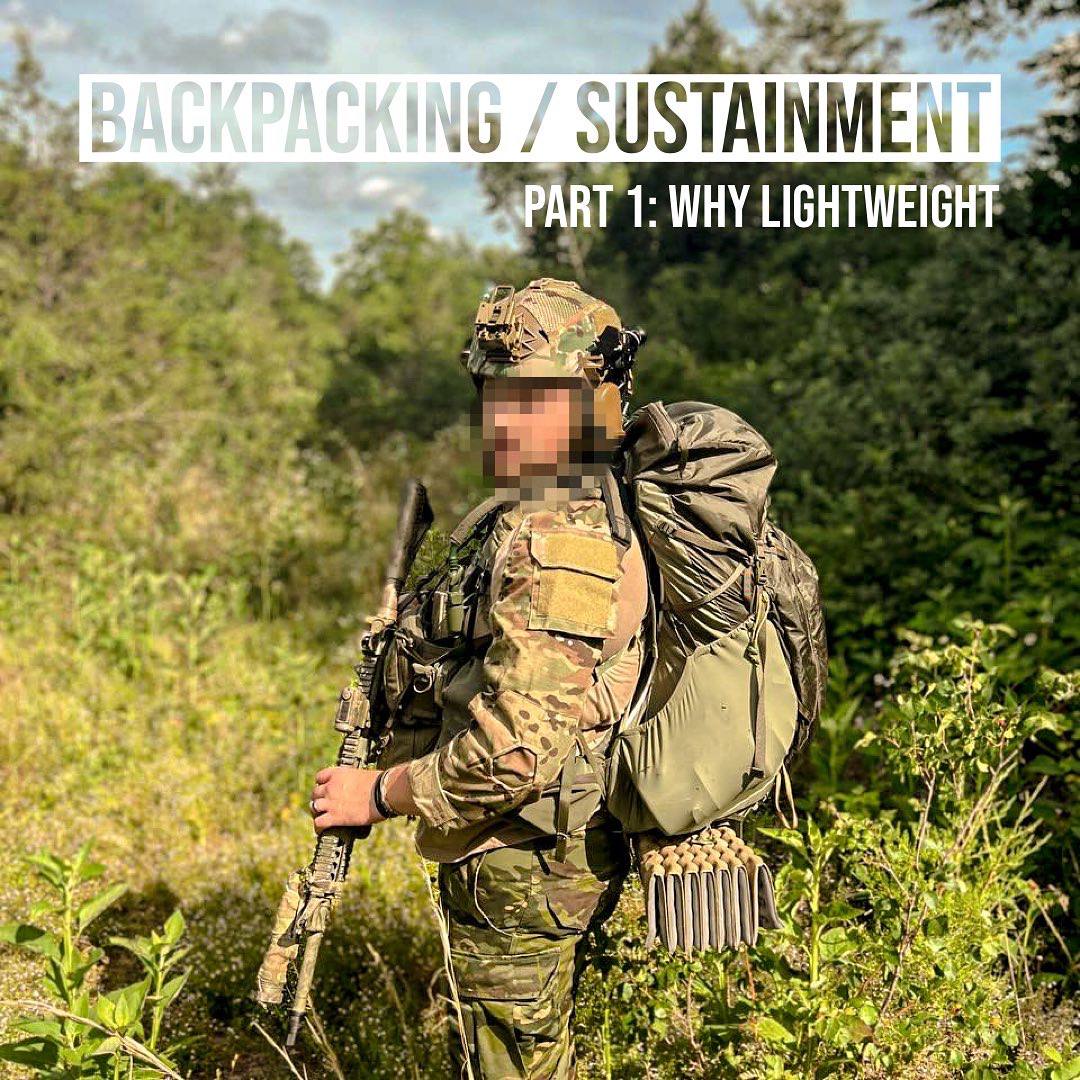Cart
Your cart is empty
Looks like you haven’t added anything yet, browse our sale below!
Continue Shopping
This is the first installment in a series on backpacking/sustainment. We’ve backpacked for years and we’ve used guns for years. It’s only recently that we’ve started to put them together. It’s really cool to combine those two worlds, but that means doubling your gear, which means doubling your weight. You’ve all heard that guy on the trail bragging about carrying a 50 lb pack, or the vet saying “In basic, we carried 80 lb rucks, just get stronger.” We should all strive to continually strengthen our bodies, but carrying that kind of weight regularly and unnecessarily is simply abusing your body. How many guys do you know whose bodies are absolutely wrecked from being in the service? How many of you are one of those? Sound off in the comments.
The truth is, carrying less weight allows you to be more agile, move quietly, cover more ground, and reduce fatigue. Reducing fatigue means you will have more energy on target (at camp) to complete tasks, and you will be able to focus better, have better situational awareness, etc when you’re not just thinking about the pain you’re experiencing.
EXAMPLE: Backpacking on the AT last year in GA, a group of soldiers came down the trail. Heads down, drooping packs, hunched over, just following the feet of the man in front of them. Obviously, they’d probably been up to a lot more than just rucking so it’s not a perfect example, but two things stood out to me:
Like I said, this isn’t about strength. This is about giving yourself every advantage and setting yourself up for success. It’s about cutting weight where you can and streamlining your gear to make you more dangerous. You shouldn’t exclude mission essential gear, but you should try to reduce weight wherever possible. In this series we’re going to talk a little about that and how we can learn from the civilian backpacking world, especially ultralight backpackers.
One of the best ways to start cutting weight is seeing how much weight you are currently carrying and where that weight is going. One of the best tools for this is LighterPack. It takes time to enter in the weights of your whole system, but it is incredibly helpful to see what percentage each system (sleep, water, food, hygiene, etc) weighs and can help you identify where you might consider getting better gear or removing excess. (My solo summer backpacking setup)

Explore the comment section of our Instagram Post for some great insight from the community.
Below are some excellent YouTube channels if you want to learn more about ultralight backpacking and backpacking in general.
Darwin On The Trail / My Life Outdoors / Dan Becker / Jupiter Hikes
Looks like you haven’t added anything yet, browse our sale below!
Continue Shopping
Leave a comment
This site is protected by hCaptcha and the hCaptcha Privacy Policy and Terms of Service apply.